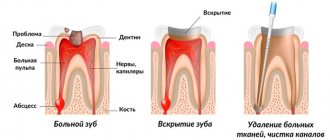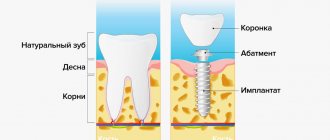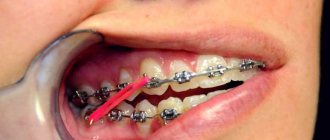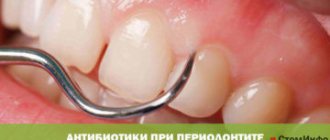Dental diseases are common among both adults and children. The initial stages require immediate treatment, otherwise the inflammatory process can cause dangerous consequences. To restore a normal state, it is recommended to use proven folk methods to relieve pain and stop the spread of infection.
Compound
Aloe pulp and juice contain many useful microelements. Due to this, the plant is widely used in traditional medicine. The possibility of using aloe for gums is determined by the following characteristics:
- Vitamin C supplies gums with micronutrients and strengthens capillaries.
- B vitamins: B1, B2, B6 and B12 promote mucosal healing.
- Vitamin E promotes effective tissue regeneration.
- It is no coincidence that folic acid helps protect against gingivitis and periodontitis. Medicines with this ingredient are used in combination with other drugs to eliminate inflammation.
- Vitamin A prevents bleeding and the formation of ulcers.
- Calcium improves blood clotting and strengthens jaw bones.
- Zinc reduces inflammation, disinfects gums, and strengthens periodontal tissue.
- Beta-sitosterol reduces inflammation, eliminates dyspepsia, which causes bad odor, if you take aloe juice internally.
The plant is famous for the fact that it effectively kills bacteria and microbes, speeds up the healing process of tissues, makes them softer, and enriches them with all necessary microelements.
Due to its properties, aloe is widely used in the medical industry. For example, to quickly treat periodontal disease, the patient is prescribed injections of plant juice into the gums. Injections are performed 3-4 times a week for a month. If the periodontal structures are seriously altered, this method is fruitful.
Beneficial properties of aloe
The plant does not require careful care, so many people grow healing succulents on the windowsill. Aloe for gums is widely used in the pharmaceutical field; gels and extracts are included in finished medicines. Actively fights inflammatory processes, relieves pain and discomfort. Blocks the proliferation of bacteria, effective against fungi, streptococci, and dysentery microflora. In dentistry, aloe injections are used in the gums for periodontal disease. Thanks to treatment, it is possible to activate metabolic processes and restore tissue.
Healing properties of aloe for teeth:
- ascorbic acid strengthens capillaries, normalizes circulation, ensures the flow of nutrients;
- B vitamins ensure healthy microflora of the mucous membrane, prevent the formation of ulcers, cracks, and damage;
- the use of aloe in dentistry is due to the content of folic acid, it is prescribed for the prevention of gingivitis, periodontitis, and is prescribed as an additional therapy in complex treatment;
- vitamin A prevents gum bleeding, has regenerating and wound-healing properties;
- calcium stops bleeding and is an essential element for blood clotting;
- zinc has an antiseptic effect and blocks the spread of infection;
- phytosterol destroys bacteria and fungal infections, as well as the unpleasant odor characteristic of the inflammatory process.
Domestic use
Bleeding and pain in the gums indicate the development of gingivitis. This disease is caused by poor hygiene, poor cleaning, and accumulation of plaque and tartar. You should not diagnose yourself; it is better to consult a dentist who will give an accurate answer.
Aloe does not help against all diseases; the plant effectively relieves symptoms . Therefore, you cannot refuse to go to the dental clinic. If you ignore the problem or self-medicate, for example, using traditional methods, you will not be able to cure gingivitis, and the disease may worsen. This leads to the development of a serious disease - periodontitis.
Contraindications
Treatment with traditional methods requires precautions. Side effects occur with an overdose; if more than 300 mg of agave is ingested, diarrhea is observed. There are a number of contraindications for treating gums with aloe:
- individual intolerance;
- taking diuretics;
- during pregnancy.
We recommend: The healing properties of aloe - benefits and contraindications
If your gums are bleeding or painful, you should consult a dentist. After identifying the cause of the pathological process, the specialist will prescribe the optimal treatment. In case of accumulation of bacteria, stone formation, inflammation, agave will only reduce discomfort.
The doctor will prescribe complex therapy, in addition to procedures and medications, aloe is also used. At home, when symptoms increase, you should not get carried away with self-medication, which can only aggravate the condition and provoke a severe course of the disease.
Aloe for treating gums?
There are various ways to use this plant for medicinal purposes. The simplest option for relieving pain and swelling of the gums is a regular aloe compress on the gums. But the effect largely depends on the type of plant and the nature of the symptoms. The gel and juice obtained from the leaves of the plant are widely used in traditional medicine.
First, you need to cut off the skin from the leaves of the agave, after thoroughly washing them under running tap water. Place a piece of aloe vera on the inflamed area. You can apply the plant to the mucous membrane for a long time, but side effects are possible. Therefore, an experiment should be conducted to test its reaction to the plant sap.
To treat periodontal disease, apply compresses from agave leaves at night. The course of therapy includes 10 applications of such a compress, which should be carried out daily.
When treating inflamed gums and stomatitis, it is possible to use freshly squeezed aloe juice as a gargle. Obtaining such juice is quite simple and possible in several ways from the leaves of the plant. You can use a meat grinder or blender to grind the leaves. In the first example, after processing, it is necessary to pass the pulp through cheesecloth. If you use a blender, you can remove the remaining leaves by hand.
You need to rinse your mouth 2 times a day until the symptoms subside. When rinsing, you should not swallow the juice, but simply spit it out.
It is advisable to use freshly prepared juice before each rinse. If you don't have time to prepare, you can stock up. A glass jar placed in a place inaccessible to light is suitable for storage.
Aloe gel is great for compresses . To get it, you just need to cut the agave leaf lengthwise and then collect the mucus that has been released.
What vegetation is good for the oral cavity?
Yarrow juice can be used in the initial stages of periodontitis and gingivitis. These diseases begin to appear when the gums are damaged by mechanical action, if teeth grow incorrectly and there is no proper oral hygiene.
The recipe for preparing a rinse solution is simple . Add 3-5 drops of yarrow juice to a glass of clean warm water and stir. The solution is ready for rinsing the mouth. After regular use you will achieve positive results.
Yarrow can be used for treatment in the form of compresses, as an addition to rinsing. To prepare, take a thick yarrow leaf, cut it and collect the medicinal mucus of the plant in a container. Roll up a piece of gauze in several layers, apply the collected gel-like juice to it and apply to the gum affected by the disease for 30 minutes. Compresses can be used for gum inflammation, bleeding, stomatitis, or loose teeth.
General description of gum disease
Modern periodontology distinguishes more than 20 gum diseases, of which periodontitis and gingivitis are the most widespread.
At its core, periodontitis is an “advanced” form of gingivitis. More precisely, the patient first develops gingivitis, which is characterized by increased bleeding, swelling and soreness of the gums, and then, in the absence of proper treatment, it progresses to the next stage - periodontitis. Gingivitis can be treated, however, if you waste time and allow gingivitis to develop into periodontitis, you can significantly worsen the situation - periodontitis cannot be completely cured, especially if you wait until it worsens (pathogenesis)! And do not try to self-medicate: use only folk remedies or self-administration of antibiotics, this can lead to periodontitis becoming rapidly progressive.
Aloe
In the aloe plant, the most valuable is acemanan, a carbohydrate from the mucopolysaccharide group. For metabolic processes, the main essential nutrients are carbohydrates. An adult gets acemanan only through food, since it is produced independently before puberty. Ginseng also contains acemanan.
Treatment with aloe juice must be carried out with caution. In advanced stages of oral diseases, this remedy provokes complications. Treatment using traditional recipes can reduce pain and alleviate the patient’s condition, but cannot eliminate the inflammatory process.
If patients are taking medication, it is prohibited to eliminate the inflammatory process in the oral cavity with aloe juice. It has been proven that the effectiveness of the effects of drugs is reduced due to the beneficial composition of the plant.
The use of medicinal decoctions, tinctures and aloe juice is prohibited for people susceptible to allergic reactions to the plant and for patients who suffer from inflammatory processes. If discomfort occurs, or itching or various allergic reactions occur, the use of aloe should be stopped immediately.
Pregnant women are not recommended to use the plant ; its juice increases uterine tone and can lead to termination of pregnancy.
Examples of recoveries
Below are the case histories of Dr. Audun Miskja and those people who turned to him for advice as a qualified private family doctor and specialist.
Story 1: Gingivitis . Moe believes his health problems date back to his youth, when he spent his time wandering around the world, often eating random food and dabbling in drugs. Now Mo has become an artist, settled down and has a wife and three children.
The new lifestyle had the most favorable effect on his health, but he could not get rid of one problem - gingivitis. Gingivitis is a painful inflammation of the gums and periodontal pockets; in addition, when brushing her teeth, Mo’s gums began to bleed. The pain did not subside day or night, and implants had to be implanted into the damaged gums. Because of the pain, Mo often could not sleep, and none of the remedies he tried helped.
I have already encountered a similar situation, and that time Aloe Vera worked well. I recommended that Mo brush his teeth with Aloe Vera dental gel, massage his gums with topical Aloe Vera gel, and rinse his mouth with a concentrated Aloe Vera liquid. And in addition, take Aloe Vera drinking gel. His wife was already drinking Aloe Vera gel for chronic fatigue syndrome, and it gave her more energy and partially relieved her lower back pain. To achieve this, she needed three months of taking 60 ml of Aloe Vera gel per day. Moe came back to me a month later with a cheerful statement that his gums had not been in such great condition since his teenage years and that he intended to continue using all these Aloe Vera products. He has now become a strong believer in meticulous dental and oral health care, which includes eating a healthy diet, massaging the gums and jaws, and taking what he calls “the essential Aloe Vera.”
For a more detailed description of the products discussed in the article, click on the “Products” section (button above).
Side effects when taking aloe
Despite the fact that aloe juice is used to treat the oral cavity, it has an effect on the entire body as a whole. If used incorrectly, serious consequences can occur:
- The occurrence of severe cramps and diarrhea.
- Allergic reaction, skin rash and irritation.
- Dehydration and electrolyte imbalance.
- Decreased blood pressure.
When starting treatment with folk remedies, it is advisable to consult with your doctor. The use of rinses and compresses should be carried out in compliance with the rules of use to avoid side effects.










